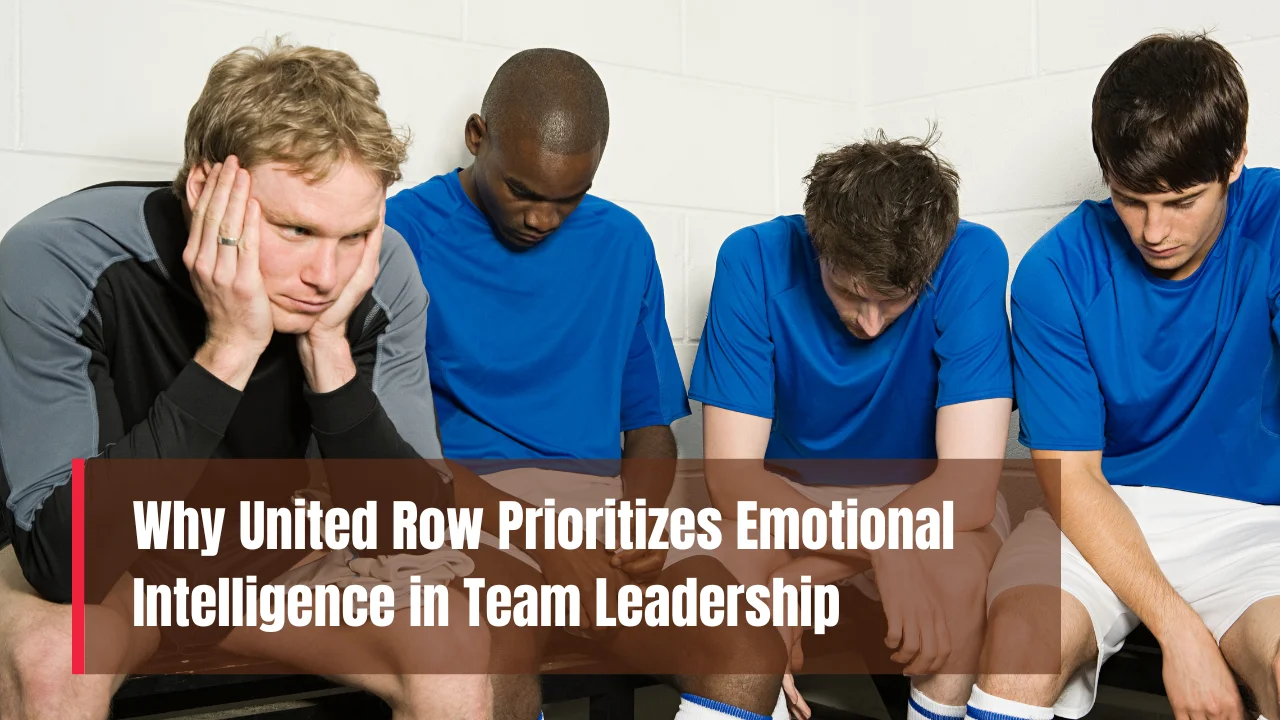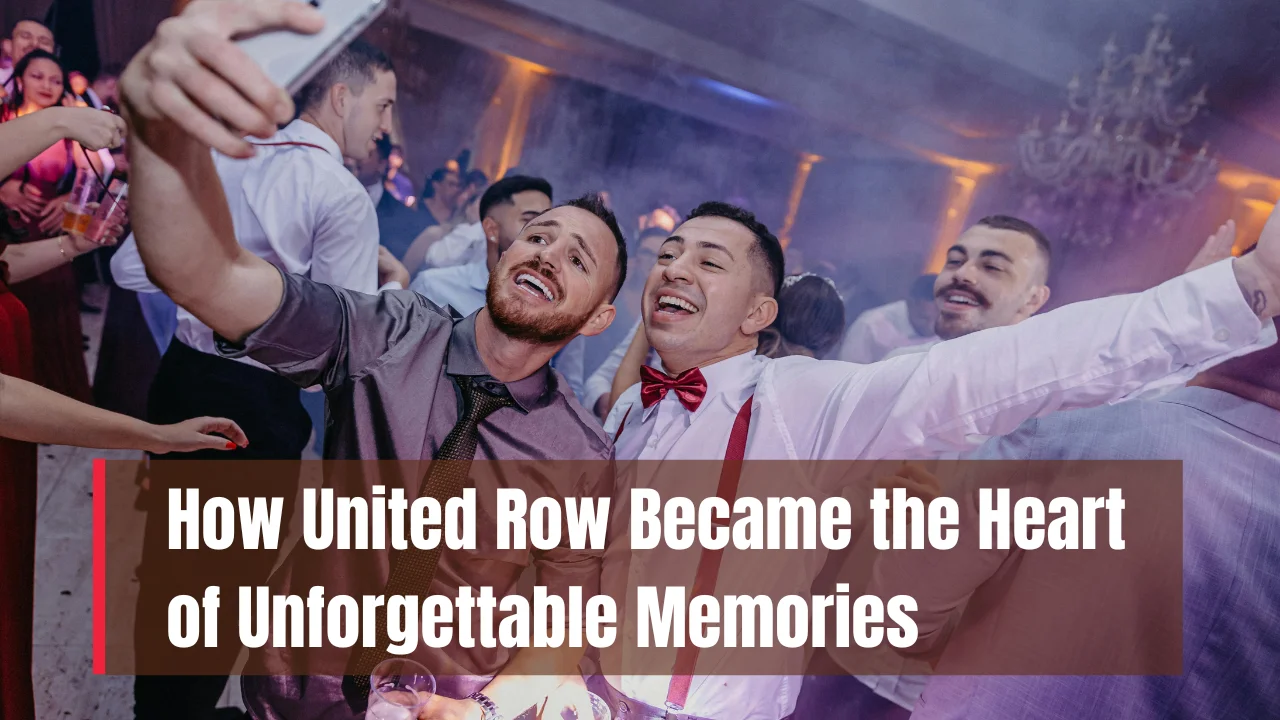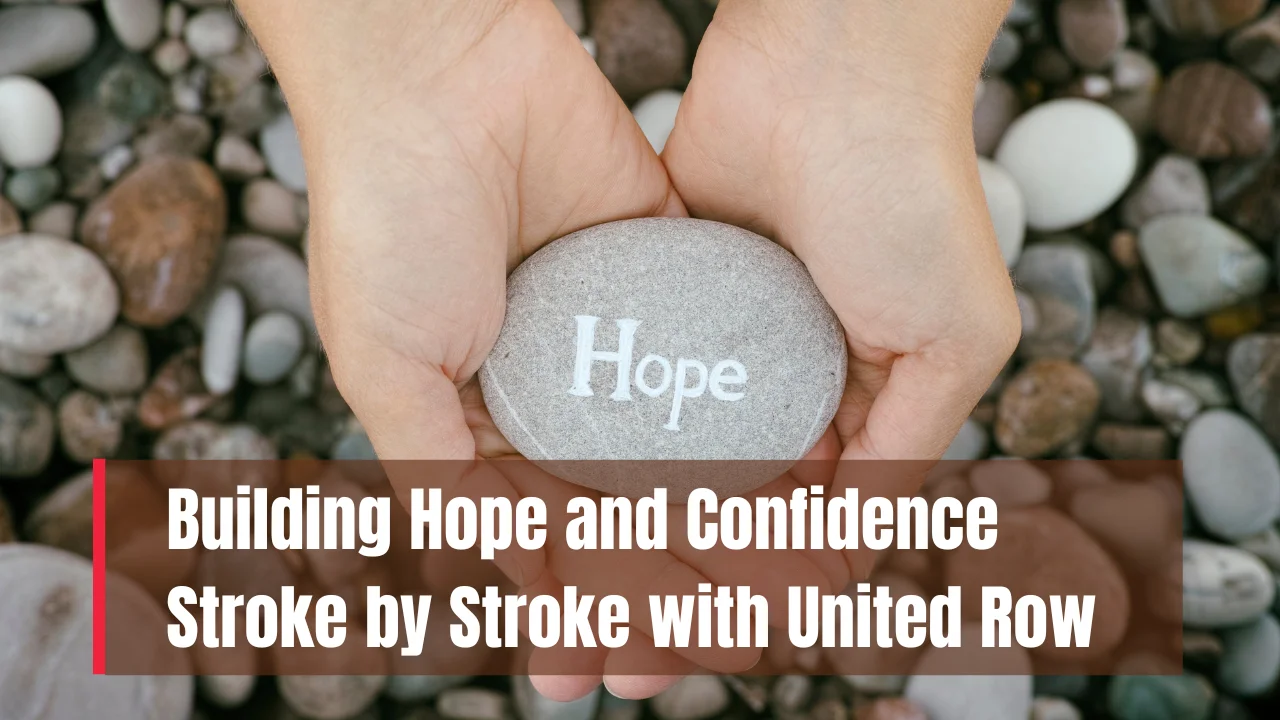Emotional Intelligence: Emotional intelligence is quickly becoming a non-negotiable skill in today’s leadership landscape, and United Row is leading the charge. As organizations evolve and adapt to more collaborative, people-focused environments, the ability to connect emotionally and communicate with empathy stands out more than ever. United Row has recognized this shift and made emotional intelligence a cornerstone of its leadership model, not as a trend, but as a strategic necessity.
In this article, we dive into how and why United Row has placed emotional intelligence at the center of its leadership philosophy. From hiring to training and everyday team management, emotional intelligence weaves through the very fabric of the company. You’ll get insights into how it influences team culture, boosts productivity, and shapes leadership performance. We’ll also examine its practical implementation and the long-term impact on both individuals and the company.
Emotional Intelligence in Team Leadership at United Row
At United Row, emotional intelligence isn’t just a soft skill—it’s a leadership essential. Leaders are expected to not only manage tasks but to understand team dynamics, navigate stress, resolve conflict, and inspire trust. This approach creates stronger, more resilient teams and promotes an environment where innovation and collaboration thrive. The company actively builds emotional intelligence through training, mentorship, and performance metrics tied to emotional awareness and interpersonal connection. Emotional intelligence is what separates good leaders from great ones at United Row.
Overview Table
| Key Aspect | Description |
| Focus of Leadership | Emotionally intelligent decision-making and communication |
| Core Leadership Skills | Self-awareness, empathy, emotional regulation, active listening |
| Hiring Strategy | Prioritizes emotional intelligence during recruitment and interviews |
| Leadership Development | Ongoing training in emotional and social intelligence |
| Conflict Management Approach | Emotion-aware and resolution-focused |
| Team Culture | Inclusive, transparent, and emotionally supportive |
| Performance Metrics | Includes emotional engagement and team sentiment |
| Long-Term Goal | Build high-trust, emotionally agile leadership across all departments |
What is Emotional Intelligence?
Emotional intelligence, often abbreviated as EI, is the ability to perceive, understand, manage, and influence emotions—both one’s own and others’. Unlike IQ, which deals with intellectual reasoning, EI is about emotional clarity and social connection. It plays a pivotal role in how leaders respond to stress, handle interpersonal dynamics, and guide their teams through change or uncertainty.
United Row views emotional intelligence not as a nice-to-have, but a must-have leadership quality. Leaders who possess high EI are more adaptable, better communicators, and can build deeper trust within teams. This aligns with the company’s commitment to human-centered leadership and a psychologically safe workplace.
Why United Row Values Emotional Intelligence
At United Row, emotional intelligence is a leadership priority because it directly impacts team cohesion, employee morale, and overall productivity. Leaders who demonstrate high emotional intelligence are better equipped to understand what motivates their teams, recognize emotional signals, and respond appropriately.
Unlike traditional leadership models that focus solely on outcomes and efficiency, United Row’s approach is people-first. This means building relationships, not just delegating tasks. Emotionally intelligent leaders create teams that are more engaged, collaborative, and resilient in the face of challenges.
The company has found that emotionally intelligent leadership helps reduce turnover, increase retention, and create a more cohesive work environment. This approach is especially effective in remote or hybrid setups, where communication and empathy are more important than ever.
The Impact on Team Performance
The influence of emotional intelligence on team performance is both measurable and meaningful. At United Row, teams led by emotionally intelligent leaders show higher levels of engagement and lower levels of stress-related absenteeism. These leaders know how to create psychological safety—where team members feel heard, respected, and comfortable sharing ideas or concerns.
Through consistent emotional check-ins, open communication, and active listening, leaders at United Row build a culture where employees feel supported. This not only improves individual performance but also enhances group collaboration and problem-solving.
When emotional awareness is built into leadership, it leads to faster conflict resolution, stronger accountability, and a shared sense of purpose across the team.
How United Row Develops Emotional Intelligence in Leaders
United Row doesn’t leave emotional intelligence to chance—it’s built into the company’s leadership development pipeline. Leaders go through structured training programs focused on building emotional competencies like empathy, self-awareness, and social regulation.
Some key strategies include:
- Interactive workshops that simulate emotionally challenging scenarios
- One-on-one coaching to help leaders reflect on emotional patterns and growth
- Team feedback loops that encourage open dialogue on emotional experiences
- Leadership journaling to develop mindfulness and emotional reflection
This process ensures emotional intelligence becomes second nature—not just something discussed during evaluations but practiced daily.
Benefits of Emotional Intelligence at United Row
When emotional intelligence is part of the organizational DNA, the results speak for themselves. Here are some of the benefits United Row has observed:
- Better communication across teams and departments
- Stronger employee loyalty due to more meaningful workplace relationships
- Improved decision-making from emotionally aware leadership
- Greater resilience in the face of change or crisis
- Higher team morale driven by inclusive and empathetic leadership
Emotionally intelligent leaders foster a culture where performance and wellness go hand-in-hand, leading to sustainable growth for both people and the business.
Key Traits of Emotionally Intelligent Leaders
Two essential traits stand out in United Row’s leadership framework:
- Empathy and Compassion: Leaders are trained to actively listen and respond with care. They recognize the unspoken emotional cues and offer support that goes beyond the task list.
- Emotional Control: Emotional balance is critical during high-stress moments. Leaders are taught to stay grounded, respond calmly, and model behavior that keeps the team steady and focused.
These traits are not accidental. They’re cultivated intentionally and evaluated consistently in leadership reviews.
Emotional Intelligence in Everyday Work
At United Row, emotional intelligence is practiced through small daily actions. Leaders hold space for open conversations during team check-ins. Feedback is offered with intention, and recognition is personalized and meaningful.
Whether it’s celebrating personal wins, navigating performance reviews, or resolving misunderstandings, emotional intelligence is what makes those moments effective and respectful. It brings humanity back to leadership—something increasingly rare but incredibly valuable.
How Emotional Intelligence Improves Decision-Making
Emotionally intelligent leaders don’t just make better decisions—they make decisions that consider both data and people. At United Row, leaders are taught to recognize how emotions affect thinking and to pause when stress or bias creeps into the decision-making process.
By considering the emotional impact of choices, leaders reduce resistance, increase buy-in, and create strategies that are both logical and human-centered. This thoughtful approach drives long-term success, not just short-term gains.
Final Thought
United Row’s commitment to emotional intelligence in leadership is more than a corporate value—it’s a competitive advantage. In a world where technology is growing faster than human connection, emotional intelligence ensures that leadership remains people-first. The company’s investment in emotional growth creates leaders who inspire, teams who trust, and workplaces that thrive.
If you’re part of a team or aspiring to lead one, consider how emotional intelligence plays a role in your leadership style. It’s not just about what you achieve, but how you make others feel in the process. Feel free to share your thoughts or experiences with emotional intelligence—and explore how your own leadership style can evolve with this powerful skill.
FAQs
What does emotional intelligence mean in leadership?
It means being aware of your emotions, understanding others’ feelings, and using that insight to lead effectively.
How does United Row assess emotional intelligence in leaders?
Through training evaluations, team feedback, and behavioral assessments during performance reviews.
Why is emotional intelligence better than just technical skills in leadership?
Because it builds trust, supports team collaboration, and helps leaders navigate emotional challenges.
Can emotional intelligence be taught?
Yes, United Row uses structured coaching and training programs to build emotional awareness in leaders.
How does emotional intelligence help in team conflict?
It allows leaders to stay calm, listen actively, and resolve issues respectfully without escalating tension.












